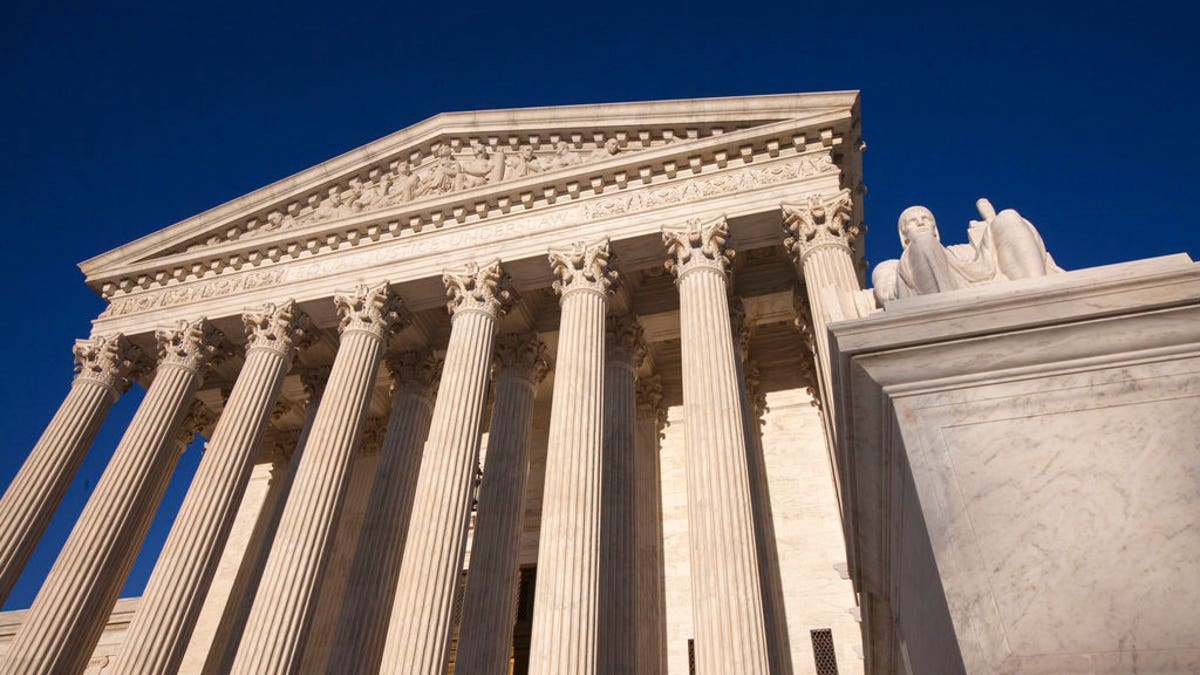
Oral arguments will be held this week at the Supreme Court on President Trump's so-called travel ban. (AP)
In a landmark First Amendment decision, the U.S. Supreme Court held Tuesday that the state of California cannot force pro-life pregnancy centers to advertise abortion. In stopping the enforcement of Assembly Bill 775, the high court affirmed every American’s right to be free from compelled speech.
The First Amendment has long protected not only the freedom to speak, but the freedom not to speak. In 1943, as our country was embroiled in a deadly war that impacted every single American, during a time of great patriotism and national pride, the Supreme Court unequivocally determined that this right is very broad.
In West Virginia Board of Ed. v. Barnette, the Court established that the government cannot force citizens to salute the flag or recite the Pledge of Allegiance. In so doing, the Court famously held: “If there is any fixed star in our constitutional constellation, it is that no official, high or petty, can prescribe what shall be orthodox in politics, nationalism, religion, or other matters of opinion, or force citizens to confess by word or act their faith therein.” The Court made it clear: The government cannot force you to speak its message.
In NIFLA, the Supreme Court is once again standing for the right of all Americans, affirming that the government cannot tell you what to say or what to think.
The First Amendment protects every American speaking on a public issue from being forced to promote any idea, whether offensive, patriotic, controversial, or even truthful.
AB 775 required licensed pro-life pregnancy centers to post a disclaimer stating that the state of California offers access to free or low-cost abortion services. Unlicensed centers were required to post a sign stating that they are not licensed, in up to 13 different languages. The sign had to be placed inside the center, on its website, and was required in all advertising—effectively crowding out the center’s own message. The burden on the speech of pro-life pregnancy centers was immense.
The Supreme Court found that the licensed centers are likely to win on their First Amendment claim because it “is a content-based regulation of speech. By compelling individuals to speak a particular message, such notices alter the content of their speech.” This decision allows pro-life pregnancy centers to be free from the government‘s message and affirms that the walls of these centers cannot be used to promote abortion.
But this decision doesn’t only protect pro-life pregnancy centers: It protects every American from being forced to speak the government’s message. The government can’t force you to advertise for abortion, and it can’t force you to salute the flag or recite the Pledge of Allegiance. Neither can it force citizens to use gender-neutral pronouns, display a license plate with a personally offensive message, contribute money to a labor union to promote ideas an employee does not support, include messages in a public parade that organizers do not wish to promote, or communicate any other ideological speech with which you disagree. The First Amendment protects every American speaking on a public issue from being forced to promote any idea, whether offensive, patriotic, controversial, or even truthful.
But the First Amendment is not without its limits. For example, reasonable regulation of commercial enterprises—such as nutrition labels on food—is permissible. Similarly, abortion providers are subject to informed consent laws, and can be required to discuss fetal development prior to performing an abortion, because a woman deserves to have complete information in that instance just as she would before undergoing any invasive, high-risk medical procedure. In fact, the Supreme Court specifically held that the California law is not designed to provide informed consent.
Moreover, the First Amendment does not apply where a private entity is compelling you to speak. As such, the NFL can require its players to stand for the national anthem. But it is without question that the First Amendment does not allow the government to force individuals to promote messages and ideas with which they disagree.
NIFLA is a landslide win not only for the First Amendment, but for every single American. Whether pro-life or pro-abortion; conservative or liberal; mainstream or revolutionary, we should all celebrate this victory for the freedom to speak without government intrusion.







































